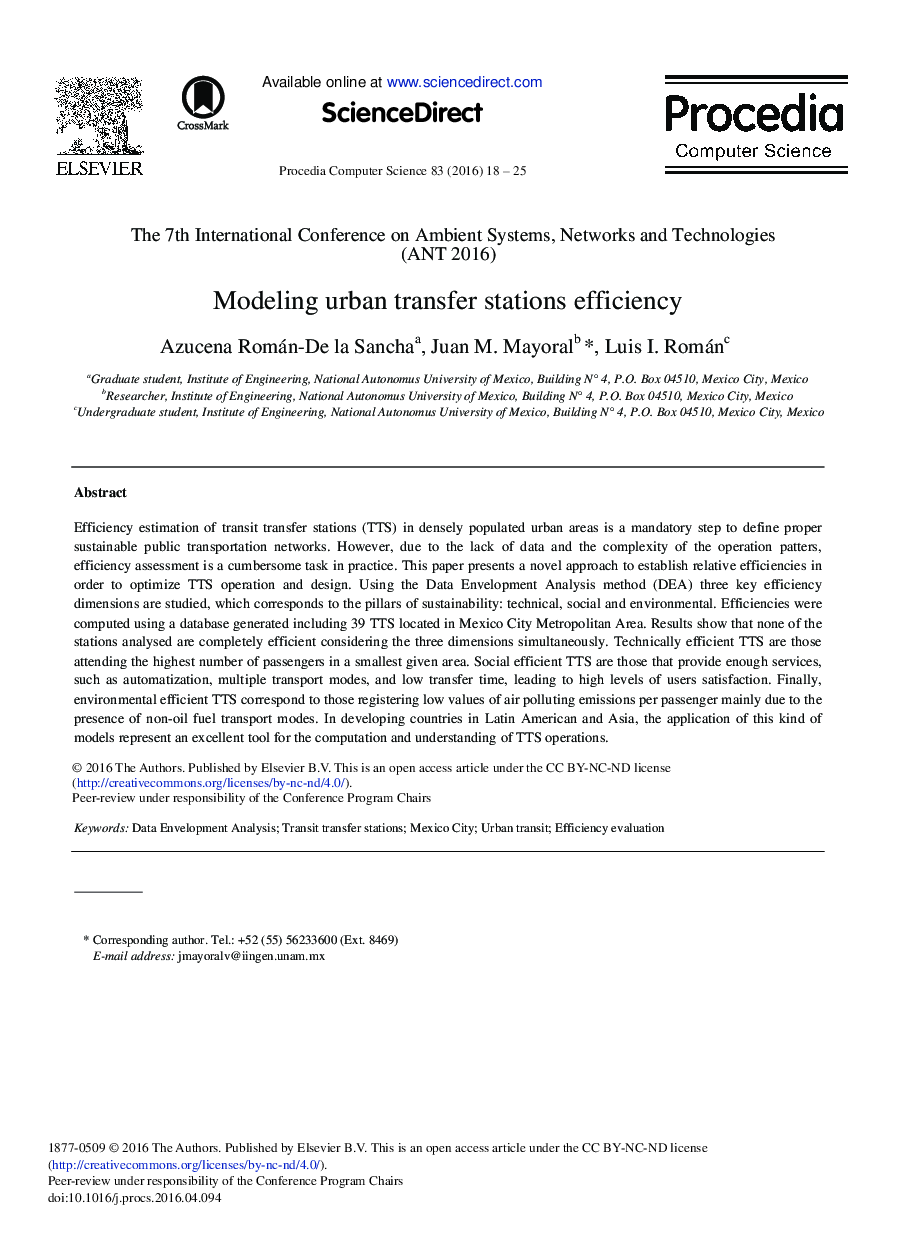| Article ID | Journal | Published Year | Pages | File Type |
|---|---|---|---|---|
| 485334 | Procedia Computer Science | 2016 | 8 Pages |
Efficiency estimation of transit transfer stations (TTS) in densely populated urban areas is a mandatory step to define proper sustainable public transportation networks. However, due to the lack of data and the complexity of the operation patters, efficiency assessment is a cumbersome task in practice. This paper presents a novel approach to establish relative efficiencies in order to optimize TTS operation and design. Using the Data Envelopment Analysis method (DEA) three key efficiency dimensions are studied, which corresponds to the pillars of sustainability: technical, social and environmental. Efficiencies were computed using a database generated including 39 TTS located in Mexico City Metropolitan Area. Results show that none of the stations analysed are completely efficient considering the three dimensions simultaneously. Technically efficient TTS are those attending the highest number of passengers in a smallest given area. Social efficient TTS are those that provide enough services, such as automatization, multiple transport modes, and low transfer time, leading to high levels of users satisfaction. Finally, environmental efficient TTS correspond to those registering low values of air polluting emissions per passenger mainly due to the presence of non-oil fuel transport modes. In developing countries in Latin American and Asia, the application of this kind of models represent an excellent tool for the computation and understanding of TTS operations.
